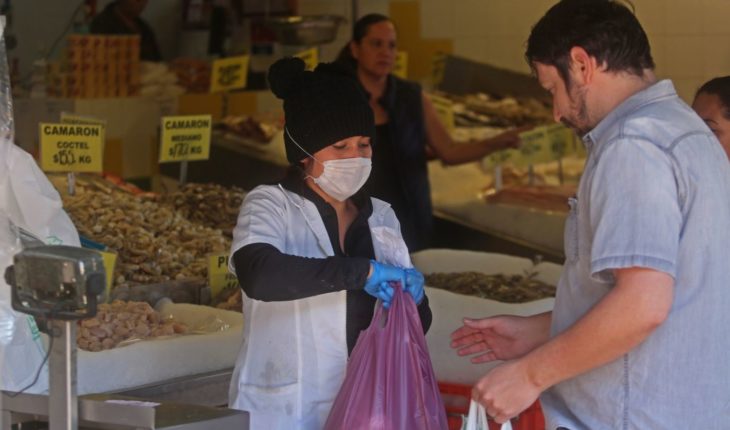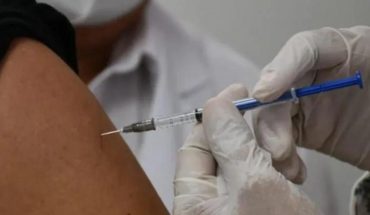The outbreak of the Covid-19 pandemic has impacted the entire world in many areas. There is uncertainty about the size impact of Coronavirus on affected countries, but the estimates are clear: the economies of many countries will be adversely affected by the pandemic and measures to contain it. Mexico is no exception and several estimates have already been made in this regard.
You may be interested: By COVID-19, in almost a month the same number of jobs that were generated in 2019 were lost
In its Pre-Criteria 2021 presented on 1 April, the Ministry of Finance made forecasts for economic growth, exchange rate and more variables that will be adjusted when the 2021 Economic Package is delivered, and which provide a basis for public spending and income calculations in the year. At the current juncture, the SHCP estimates economic growth in 2020 between (-)3.9% and 0.1%; for the coming year the estimate ranges from 1.5% to 3.5%. The negative estimate for 2020 is consistent with the 2020 economic growth scenarios posed by some banks and organizations. In Banxico’s March survey for private sector specialists, a decrease in the Mexican economy was estimated to be 2020 (-)3.99%, although there are estimates of steeper falls, such as Bank of America and JP Morgan, of (-)8.0% and (-)7.0%, respectively. The strong economic contraction is expected in a year that follows 2019, when the Mexican economy had a growth rate of (-)0.1%, the lowest since 2009.
The effects of the pandemic on the national economy are already beginning to be observed: activities have been stopped in large companies and small businesses, mass events and sporting events have been cancelled, the dynamics of education have changed nationally, and the people who can be working from home. All these measures, with the aim of reducing the spread of the virus and curbing contagion, have greatly reduced the country’s economic activity and are expected to affect both the country’s income and workers.
According to the INEGI Economic Census, in 2018 4 million 774 thousand private or parastatal establishments in Mexico, of which 95% qualify as micro-enterprises (those with fewer than 10 employees); micro-enterprises, which include beauty salons, grocery retailers and stationery, among other businesses, provide employment to 38% of the people employed in the country. In total, more than 10 million people are employed in micro-enterprises, which will be heavily affected by the health emergency.
The economic crisis caused by the Covid-19 pandemic governments of countries such as the USA, Spain, Chile and Argentina, among many others, have presented economic support packages that include measures such as credits to SmEs, deferring the payment of taxes for companies to cope with declining incomes, unemployment benefits in greater proportion and monetary support for workers who have lost their jobs as a result of the virus situation, among many others. The aid dimension of these countries ranges from 2% to 20% of their GDP; in Latin America, Chile has presented support equal to 4.7% of its GDP, while the support announced by Argentina is 1.5%.
On Sunday, April 5, President Andrés Manuel López Obrador noted some progress in public spending in the context of the Coronavirus situation in Mexico. Despite announcing progress in government-already-watched expenditures and certain advances in social programme payments, a package of concrete measures was not announced to support vulnerable sectors such as micro-enterprises in the face of the likelihood of a sharp reduction in their income. No action to reduce the burden of business or workers on businesses or workers was announced, for example, or a transfer programme aimed at the most vulnerable sector of the population whose work could be affected by the health emergency.
Read more: This will be the delivery of credits of 25 thousand pesos for small businesses before the COVID-19 pandemic
It is important that measures are being implemented to protect the most vulnerable sectors of the economy, both in the population and in business. Supporting enterprises, particularly micro-enterprises, is critical as they concentrate a good part of the national economy; Together, all micro and small enterprises with between 0 and 50 workers contribute 99% of the country’s total businesses and employ 53% of the country’s total workers. It is essential to provide an impact so that in the face of the contraction of the economy its activities can continue and the incomes of the people who depend on these activities are sufficient to survive.
What we do in Animal Político requires professional journalists, teamwork, dialogue with readers and something very important: independence. You can help us keep going. Be part of the team.
Subscribe to Animal Político, receive benefits and support free journalism #YoSoyAnimal.





